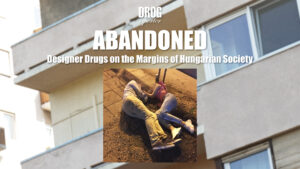“An example of not learning from good practice.” Darko Kostovski, a psychiatrist from Skopje, highlights the problems the clients of opiate substitution treatment face in Macedonia.
In the early 90s the Republic of Macedonia was, like most of the ex-socialist countries in Eastern Europe, facing a heroin epidemic. The medical and social services were not prepared to face this situation, and as a result more than 80% of people who inject drugs became infected with Hepatitis C. At the time there was only one centre for methadone treatment in the country serving more than 400 patients. A significant number of patients travelled more than 100 km every day to take their daily dose of methadone. The human rights and the right to treatment were not taken into consideration as essential in the quality of care for this group of patients. The interventions were chaotic, stigmatisation and discrimination of patients and the professionals providing the services were the leading response from the officials, police, church, and educational system. In those times the Macedonian reality regarding people who use drugs and marginalised groups of people could have been easily depicted with few words: waiting list for treatment, prosecution and punishment, and overdoses.
Harm reduction as a strategy was denied by the decision makers. The main driver of the harm reduction concept in Macedonia was civil society, being both its promotor and provider. In a sense, civil society has developed a social and health support system for those most in need. The international organisations were providing the funding, building capacity, and sharing the best practices. But moreover, besides provision of services, civil society and the community have been leading the process of advocacy for availability and accessibility of services. As a result, in 2006, with a strong push from UN agencies and the EU, harm reduction became recognised in the National Strategy on drugs and in the next 6 years 10 methadone treatment centres were opened, funded by Global Fund. However, the centres faced many challenges, especially in implementing a multidisciplinary approach and ensuring good quality services.
Regrettably, over the years little progress was achieved and many retrogressive measures by the responsible institutions were taken. For example, just recently one of the three methadone programs in the city of Skopje was closed. Consequently 150 patients from this program were directed to the other program that was already overloaded with more than 260 patients.
In summary, among other reasons for the worrying situation regarding drug treatment in Macedonia, the following are crucial:
– The state doesn’t take ownership of the established network of treatment services and doesn’t recognise the urgency of establishing their sustainability. The actions taken until now were initiated by the international organisations and civil society and had only short term effects;
-Despite recent changes in the political scene and among health authorities there is no evidence of tangible measures for improvement of the treatment process;
-The methadone programs are centralised and there is an absence of a multidisciplinary approach.
As a result:
-Client health and social wellbeing have been seriously deteriorating;
-Methadone has replaced the heroin on the black-market, but the dominant way of use is injecting. A significant percentage of clients on methadone treatment inject their medication.
-People who use opiates but who are not part of the methadone programme have no access to methadone when they are hospitalised and are in need of surgical interventions. This is an evident violation of the basic human right to access to health services.
In order to halt the negative trend urgent measures should be taken by the health decision makers:
-To enable sufficient funding for the established infrastructure of treatment services after the exit of the Global fund and other international supporters;
-To incorporate the good practice from the work of the civil society in the past 2 decades based on a multidisciplinary approach and recognising the rights and needs of the community in the state health system;
-To decentralise the treatment programs on the local level. Every municipality should open treatment centres.
Darko Kostovski, psychiatrist






